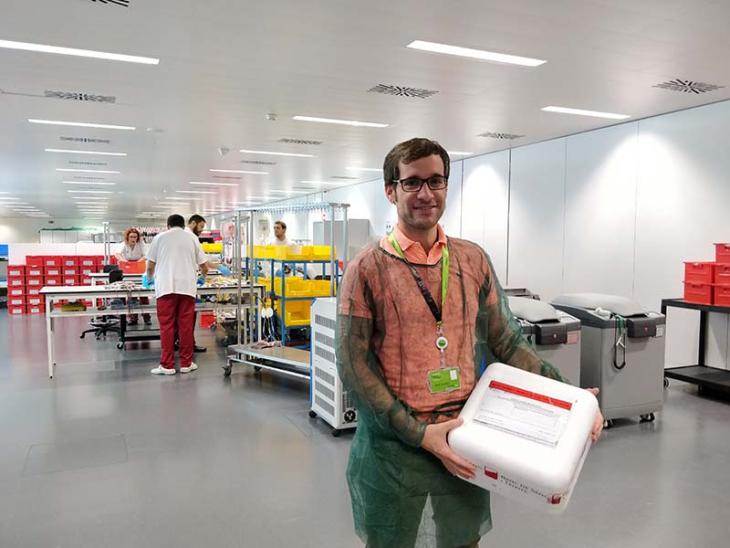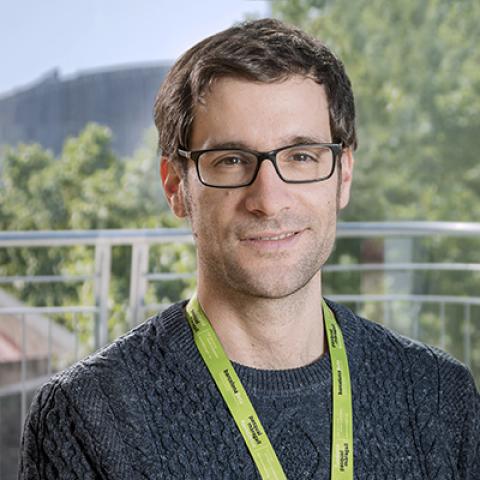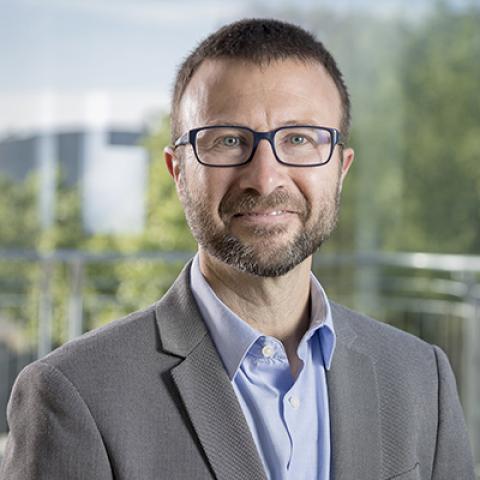08 Jan | 2019
BBRC launches new study with umbilical cord blood from the Blood and Tissue Bank

Marc Suárez-Calvet holding umbilical cord blood samples from the Blood and Tissue Bank
The Barcelonaβeta Brain Research Center (BBRC) has started AlfaAge, a cross-sectional, proof-of-concept study that will analyse umbilical cord blood, thanks to an agreement with the Blood and Tissue Bank of Catalonia. The study will also investigate blood from teenagers, young adults and individuals older than 70 years.
The aim of AlfaAge is to measure, in humans, blood factors that have been found to be ‘pro-youthful’ or ‘pro-aging’ in previous studies with mice. “If we identify blood biomarkers related to ageing, we will open new therapeutic pathways of interest not only for Alzheimer’s disease, in which ageing is the main risk factor, but also in other diseases associated with ageing”, says Marc Suárez-Calvet, principal investigator of the study.
BBRC researchers will analyse a total of 120 blood samples, including 30 samples of umbilical cord blood from the Blood and Tissue Bank, 30 samples of plasma from teenagers who participated in the Walnuts project at ISGlobal (PI: Jordi Júlvez), 30 blood samples from young adults from 18 to 25 years old visited at BBRC, and 30 blood samples from people older than 70 years also visited at the research centre of the Pasqual Maragall Foundation.
Samples will be analysed at BBRC and the Sahlgrenska Academy of the University of Göteborg, under the supervision of doctors José Luis Molinuevo and Kaj Blennow for the BioAlfa project, which will analyse, in the research participants of the Alfa Study, the most relevant biomarkers obtained in AlfaAge. According to Suárez-Calvet, “the analyses of AlfaAge could allow us to demonstrate that there are differences in the concentration of these blood factors between age groups. If so, we will determine in the BioAlfa project whether these factors may have an impact on the brain function of middle-aged research participants”.
The Alfa Study is funded by “la Caixa” Banking Foundation, and composed of 2.743 research participants from 45 to 70 years old.
The AlfaAge study is partially funded by the Marie Skłodowska-Curie Grant nº 752310, in the framework of the Horizon 2020 Research and Innovation Program of the European Union.











